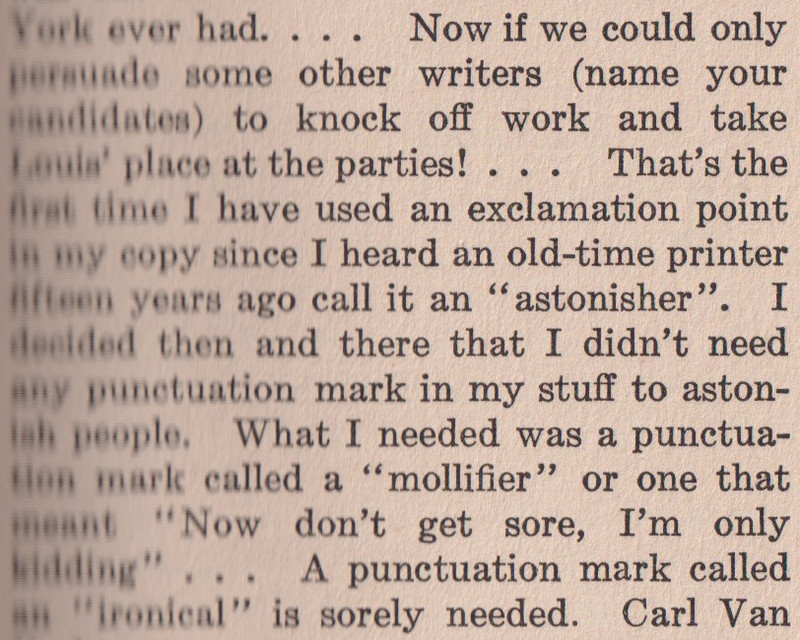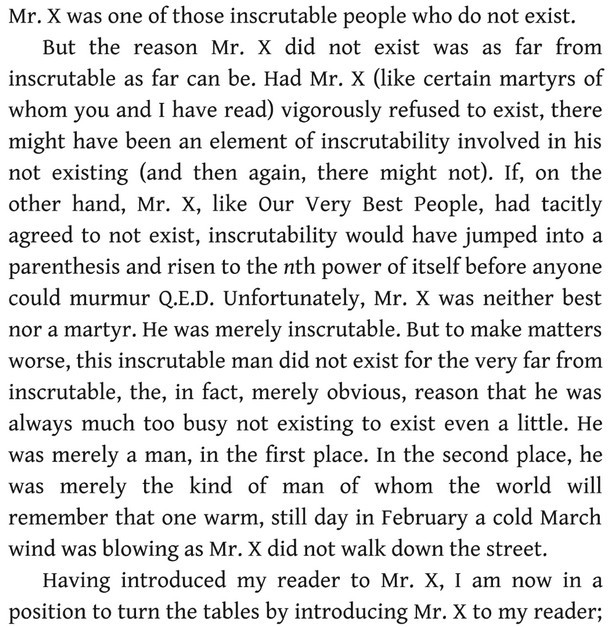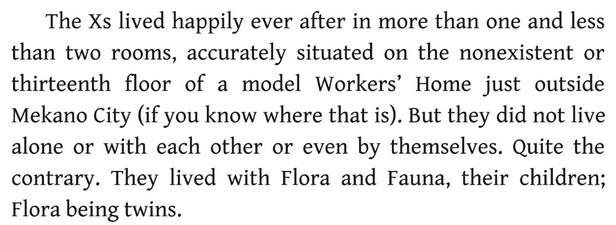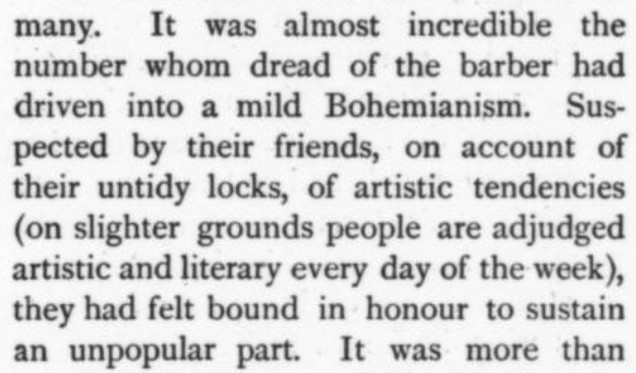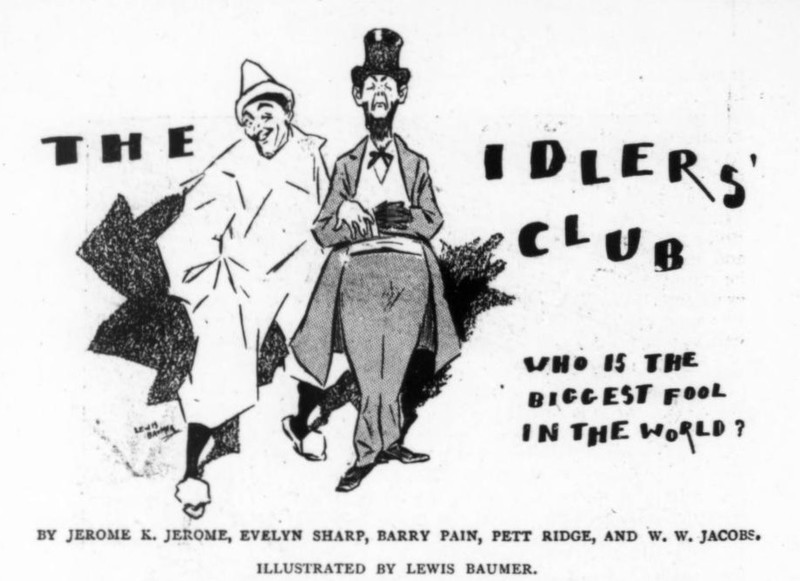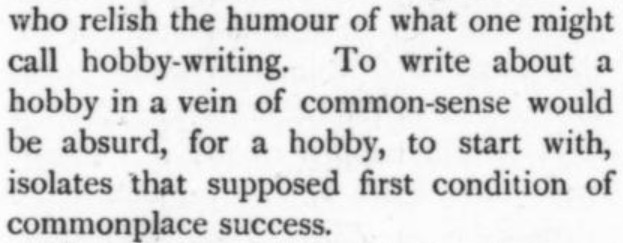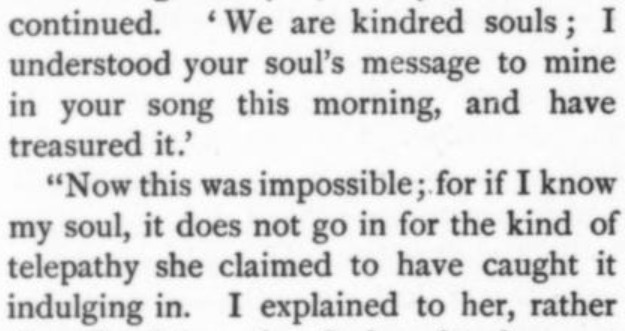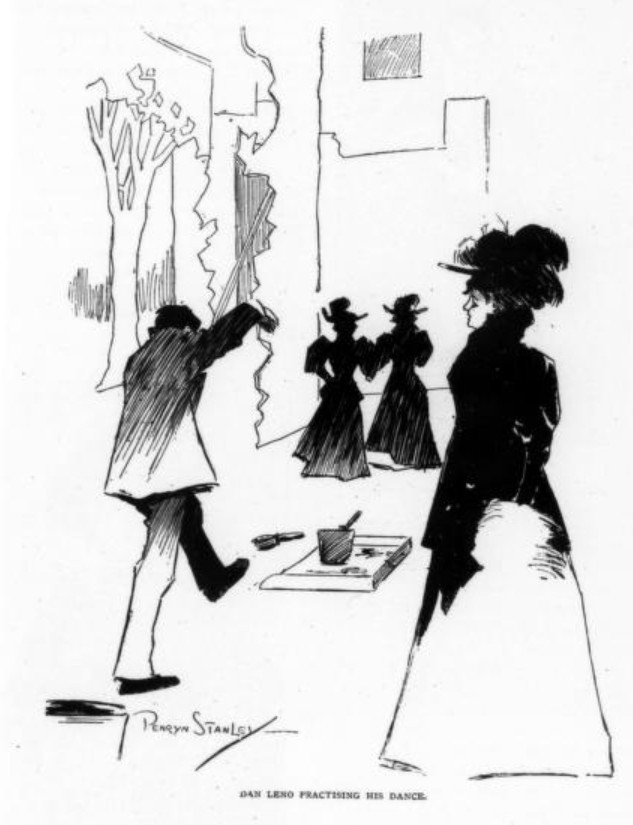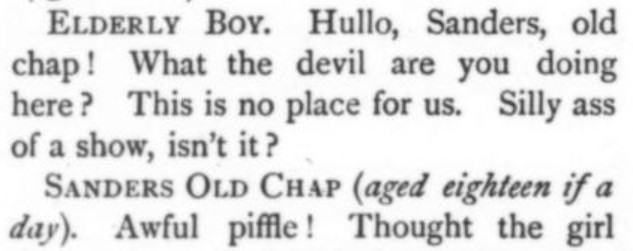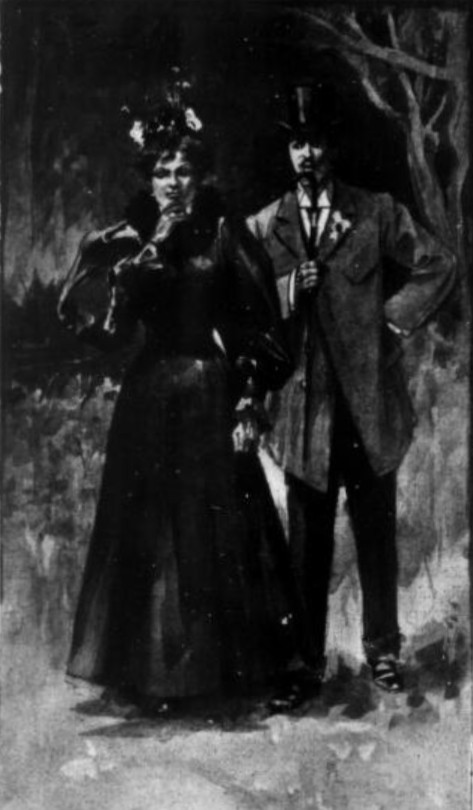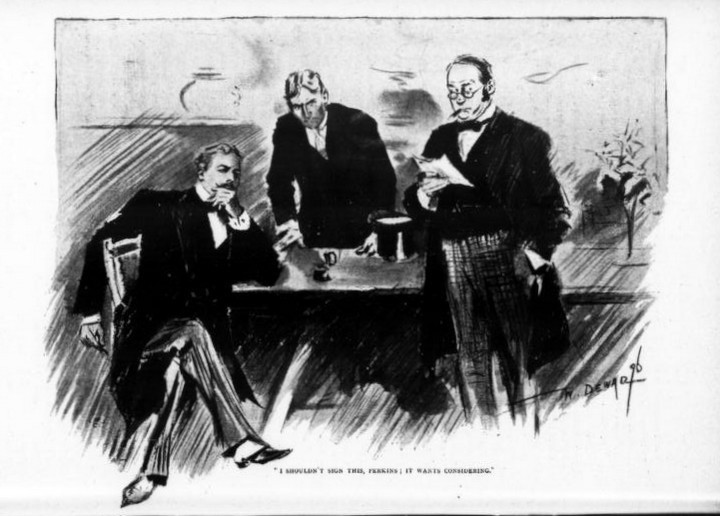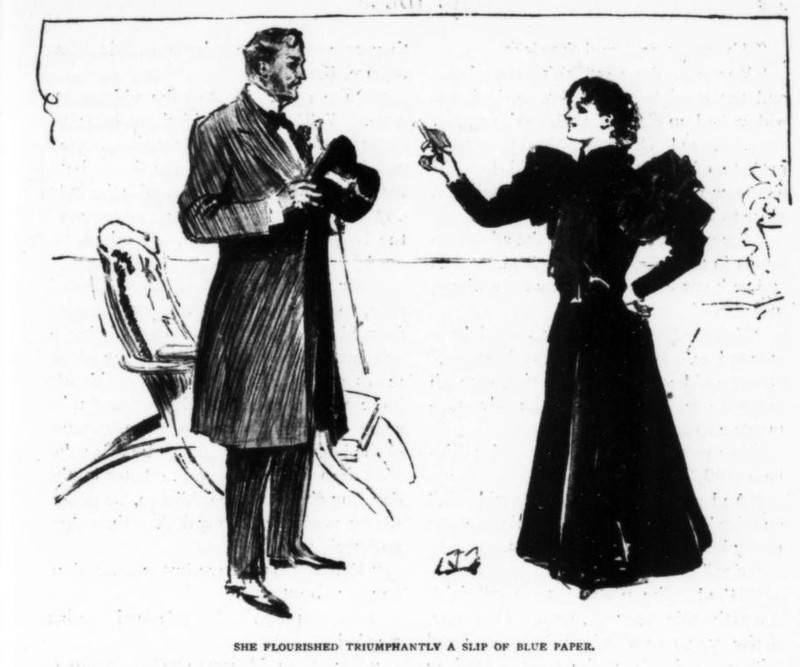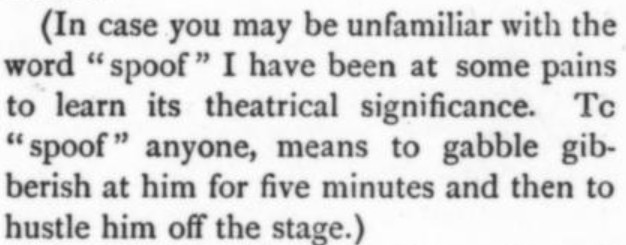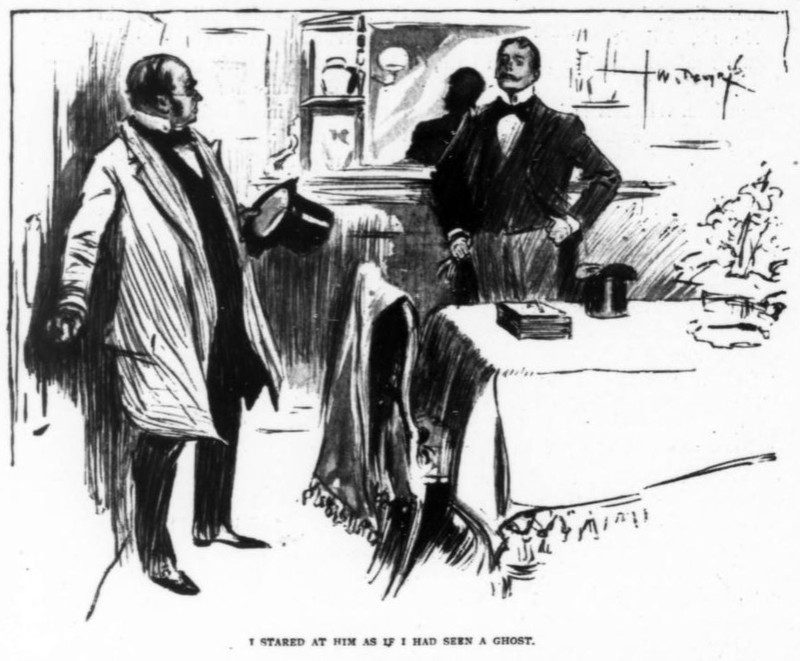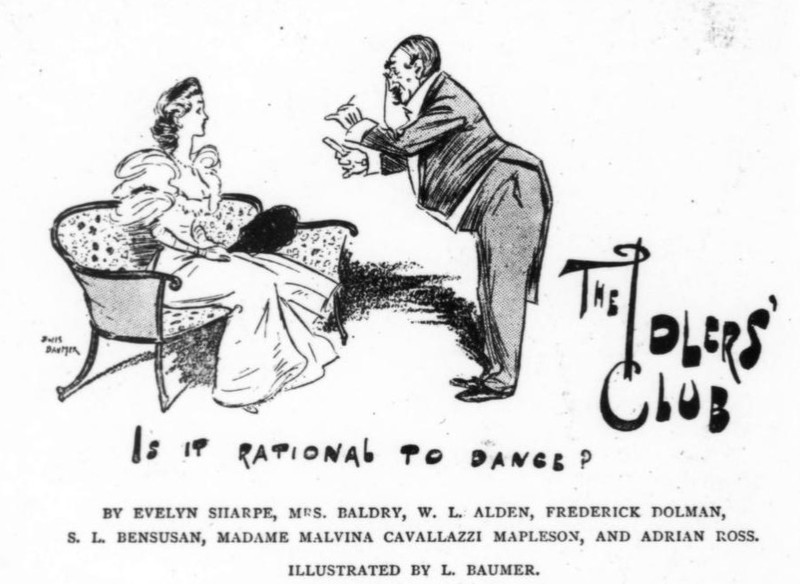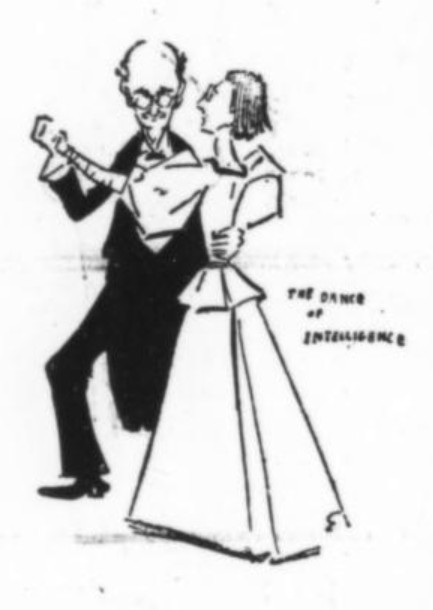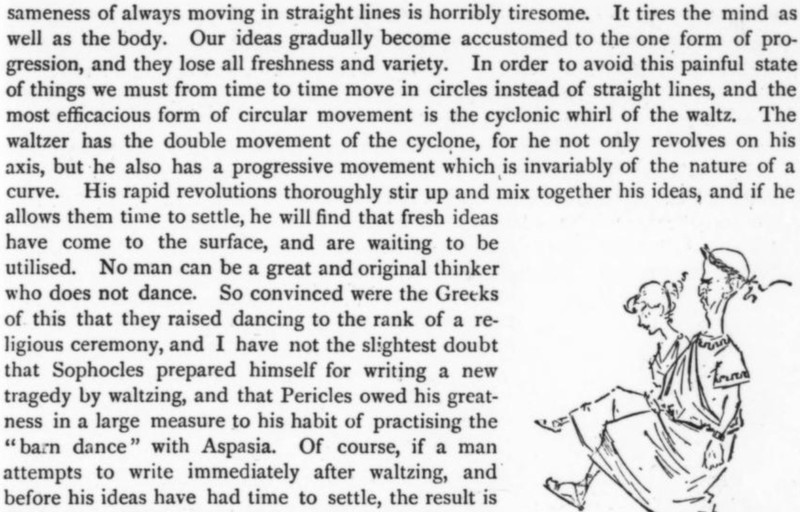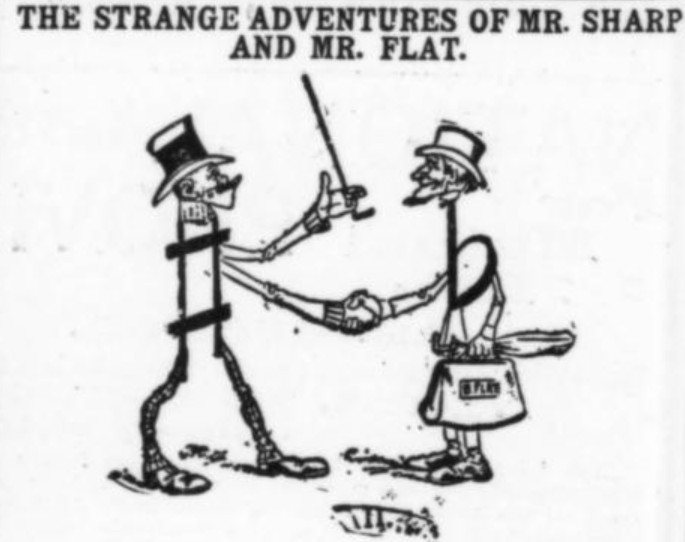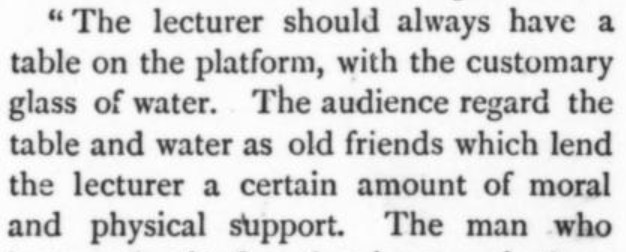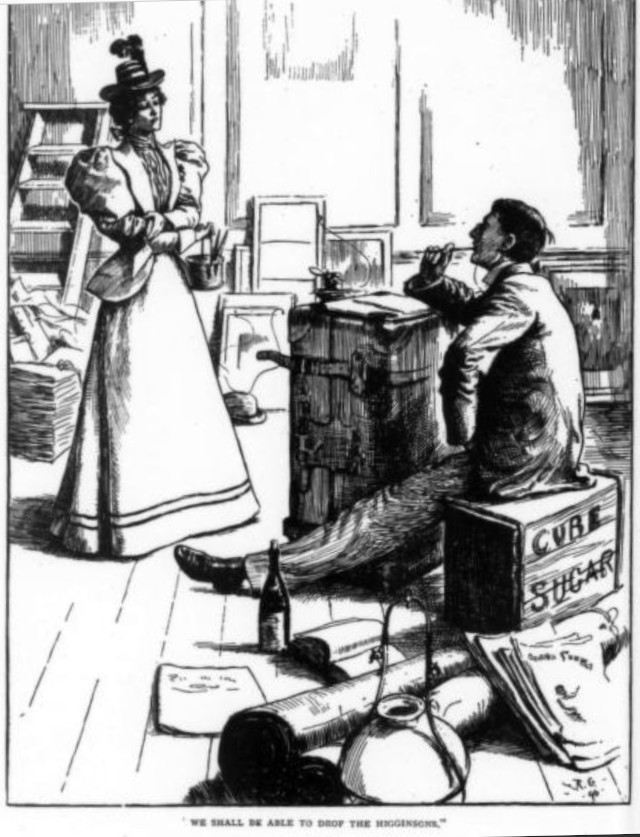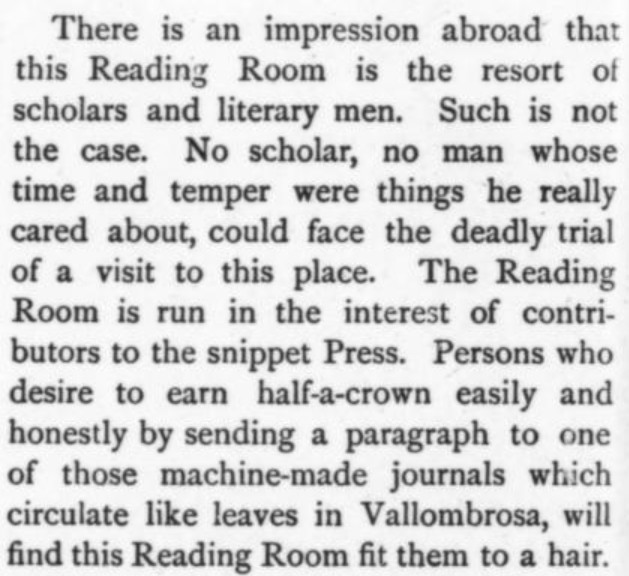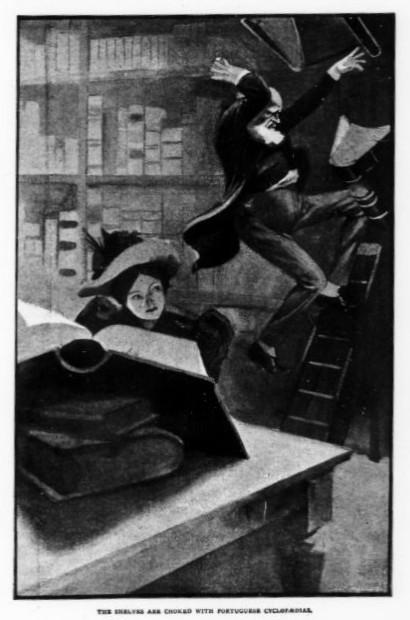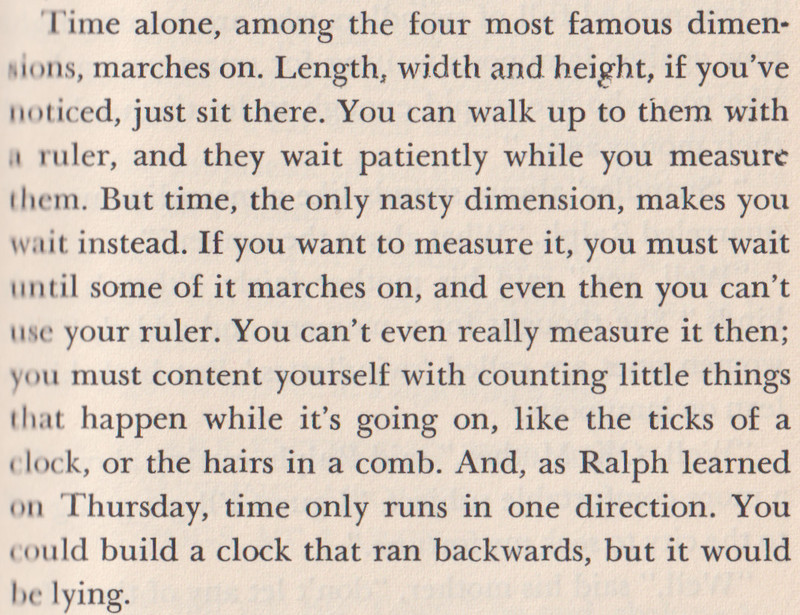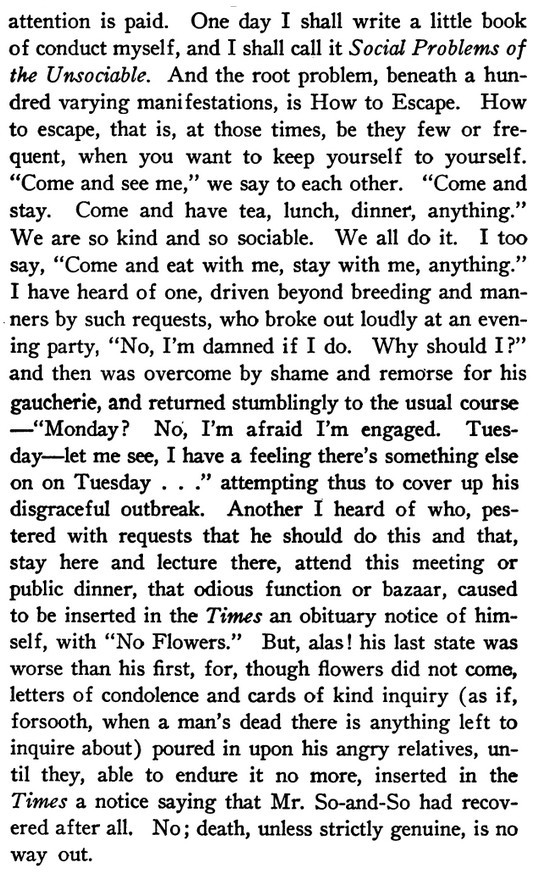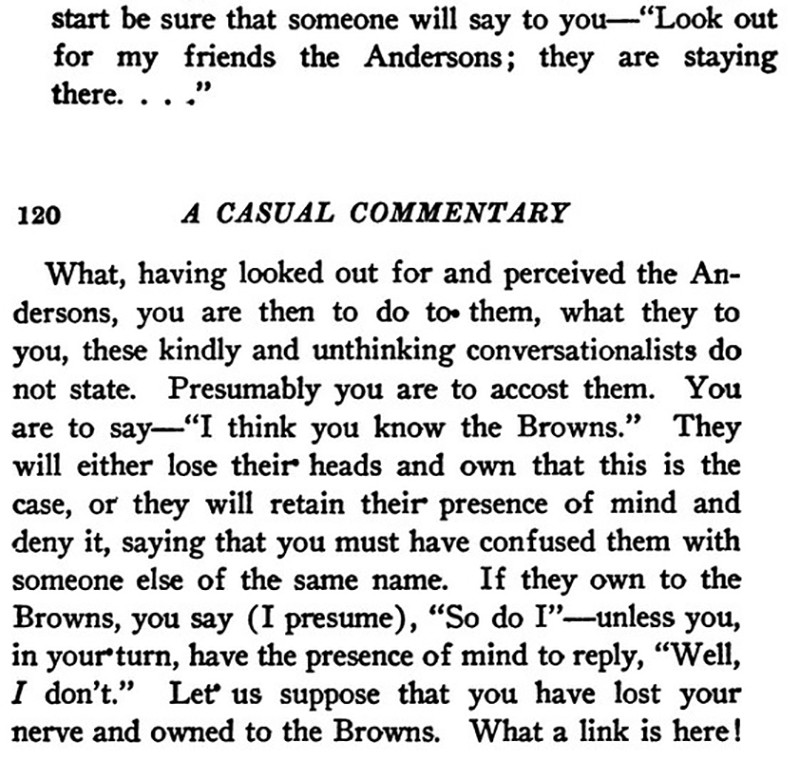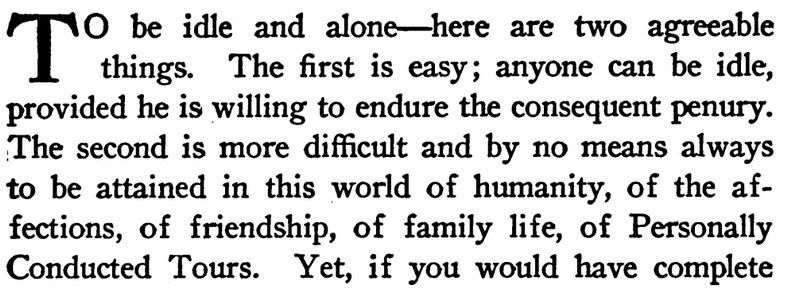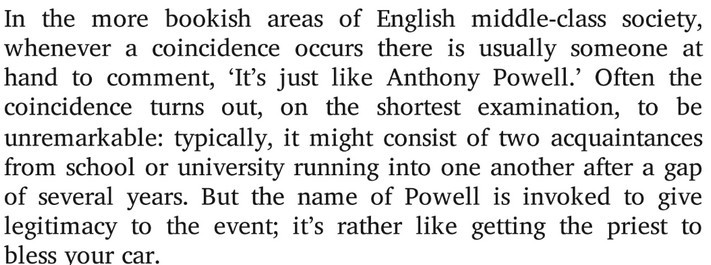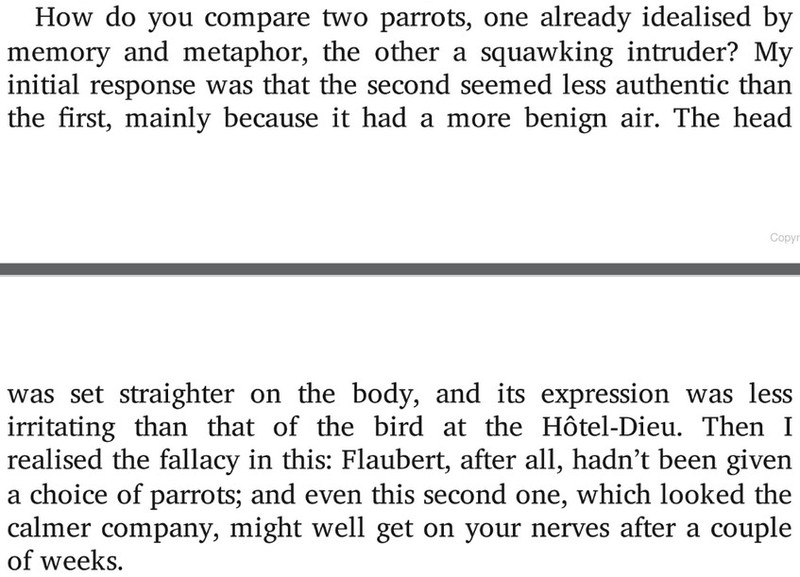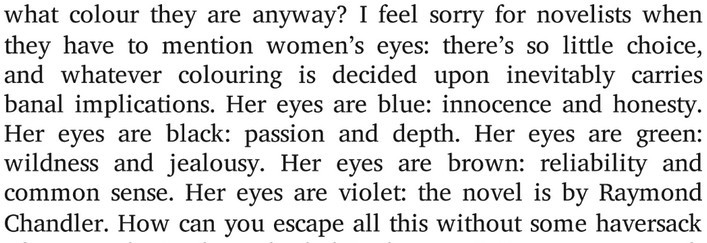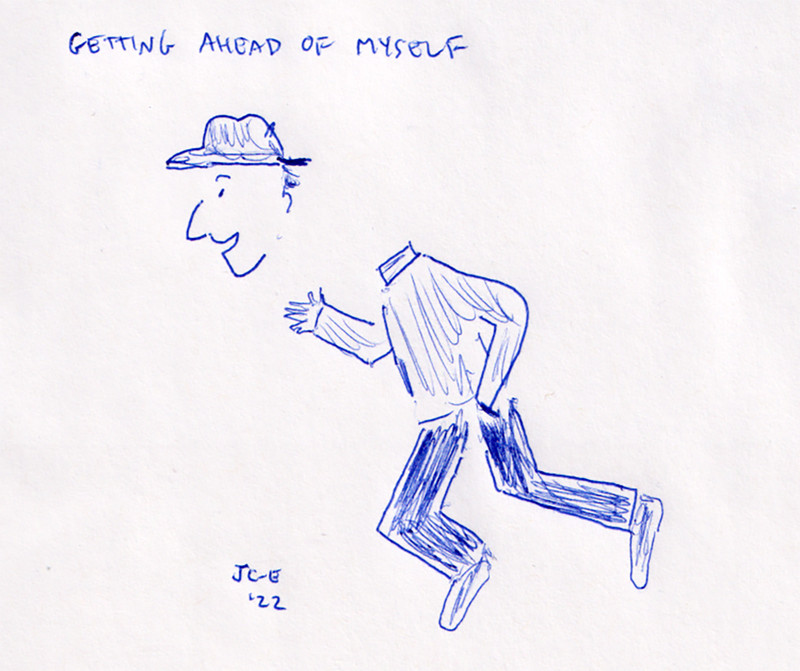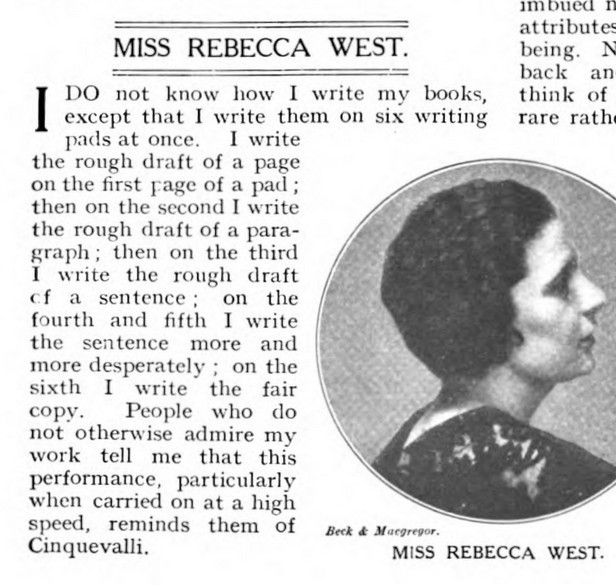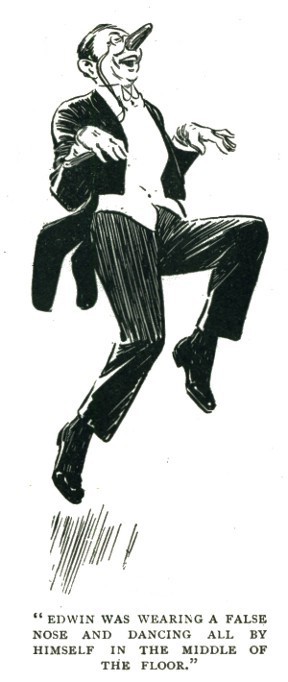

 |
|
|
 |
 |
 |
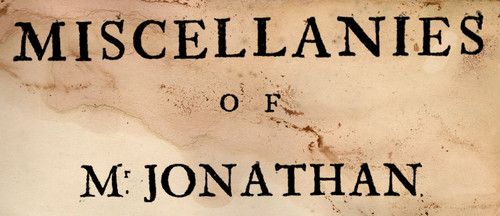
unearths some literary gems.
From On the Stage--and Off, by Jerome K. Jerome:
***When I communicated my heroic resolution to my friends, they reasoned with me. That is, they called me a fool; and then said that they had always thought me a sensible fellow, though that was the first I had ever heard of it.***I read through every word of Shakespeare,—with notes, which made it still more unintelligible.***Among the sham agents must be classed the “Professors,” or “X. Y. Z.‘s,” who are always “able to place two or three” (never more than two or three: it would be no use four applying) “lady and gentlemen amateurs, of tall or medium stature, either dark or fair, but must be of good appearance, at a leading West-end theater, in good parts: Salaried engagement.”***In these reminiscences I intend to talk only about what I understand—an eccentric resolution for an author, I admit; but no matter, I like to be original now and then.***Of course, I had assumed a stage name. They all do it. Heaven only knows why; I am sure they don’t. While in the profession, I met a young fellow whose real name happened to be the very one that I had assumed, while he had taken my real name for his assumed one. We were both happy and contented enough, until we met; but afterward we took a sadder view of life, with all its shams and vanities.***The music stools and stands in the orchestra, together with the big drum, and the violoncello in a green baize case, were all in a heap in the corner, as if they had had a performance on their own account during the night, and had ended up by getting drunk.***But no, they would all of them live in cottages. It would not pay to alter three or four different scenes, and turn them all into cottages, especially as they might, likely enough, be wanted for something else in a week’s time; so our one cottage interior had to accommodate about four distinct families. To keep up appearances, however, it was called by a different name on each occasion. With a round table and a candle, it was a widow’s cottage. With two candles and a gun, it was a blacksmith’s house. A square table instead of a round one—“Daddy Soloman’s home on the road to London. ‘Home, sweet home.’” Put a spade in the corner, and hang a coat behind the door, and you had the old mill on the Yorkshire moors.It was all no use though. The audience, on the opening night, greeted its second appearance with cries of kindly recognition, and at once entered into the Humor of the thing....After one or two more appearances, the cottage became an established favorite with the gallery. So much so, indeed, that when two scenes passed without it being let down, there were many and anxious inquiries after it, and an earnest hope expressed that nothing serious had happened to it. Its reappearance in the next act (as something entirely new) was greeted with a round of applause, and a triumphant demand to know, “Who said it was lost?”***We had no dress rehearsal. In the whole course of my professional life, I remember but one dress rehearsal. That was for a pantomime in the provinces. Only half the costumes arrived in time for it. I myself appeared in a steel breast-plate and helmet, and a pair of check trousers; and I have a recollection of seeing somebody else...going about in spangled tights and a frock coat. There was a want of finish, as one might say, about the affair.***I am told that in my frock and pinafore days, I used to stand upon the table, and recite poetry, to the intense gratification of my elderly relatives (ah, the old folks knew how to enjoy themselves, when I was a boy!); and an old nurse of mine always insisted that on one occasion I collected half a crown in an omnibus by my spirited rendering of “Baa, baa, black sheep.” I have no recollection of this performance myself though, and, if it really did take place, where’s the money? This part of the question has never, to my mind, been satisfactorily cleared up.***"Our leading man has never turned up, so his part has been cut out, and this has not improved the plot."***“Sometimes there’s a row over the cast. Second Low Comedy isn’t going to play old men. That’s not his line; he was not engaged to play old men. He’ll see everybody somethinged first."***They bore you to death every day, too, with a complete record of the sayings and doings of some immaculate young man lodger they once had. This young man appears to have been quite overweighted with a crushing sense of the goodness of the landlady in question. Many and many a time has he said to her, with tears in his eyes: “Ah, Mrs. So-and-so, you have been more than a mother to me”; and then he has pressed her hand, and felt he could never repay her kindness. Which seems to have been the fact, for he has generally gone off, in the end, owing a pretty considerable sum.***I left here to join a small touring company as Juvenile Lead. I looked upon the offer as a grand opportunity at the time, and following Horace’s * advice, grasped it by the forelock.* Not quite sure whose advice this is. Have put it down to Horace to avoid contradiction.***I, with two or three others, thereupon started off for a theater at the East End, which was about to be opened for a limited number of nights by some great world-renowned actor. This was about the fortieth world-renowned party. I had heard of for the first time within the last twelvemonth. My education in the matter of world-renowned people had evidently been shamefully neglected.***
|

 |
|
|
 |
 |
 |

unearths some literary gems.
From the Idler, vol. 9 (1896):
***
"I respected the wishes of the donkey, therefore, and drew the line, henceforward, at six songs." [The donkey is pulling a cart or something, and is therefore a captive audience for the amateur singer.]
***
"I think it's so clever for children to be--to be--what is the word?--clever.
***
[Notes on some of the attachments...]
[The passage about accidental bohemians is from a piece wherein a staff of bald barbers is rounded up to cater to balding men who are intimidated by barbers with full heads of hair.]
["Five O'clock Tea": In which Art Nouveau precurses Billy's dotted-line excursions in The Family Circus?]
["Sanders Old Chap": Ha! Having been addressed thus by his colleague, the phrase slips into place as his "official" character name.]
["She must have much more time to think about it": That was what the caption told us. (I couldn't get the caption to fit legibly into my screen capture.)]
["Teasing a picture": The context, in case it's not self-evident, is the challenge of painting versus writing.]
["The wrong ghost": The illustrator seems to have goofed here: in the story, it's the gentleman at left whose presence has startled the narrator-protagonist, whose appearance in the various illustrations consistently matches that of the gentleman at right (Perkins, as seen in "I shouldn't sign this," seated at left as if he's having his portrait painted by a Royal Academician, and has no intention of signing anything anytime soon.). P.S. The landlady in these stories is called Mrs. Nix. Meanwhile, in some other piece, we have a Mrs. Trivett.]
|

 |
|
|
 |
 |
 |

unearths some literary gems.
|




 |
|
|
 |
 |
 |

unearths some literary gems.
From Flaubert's Parrot, by Julian Barnes:
***
The parrot, he wrote, had been on his desk for three weeks, and the sight of it was beginning to irritate him.
***
You could say that the parrot, representing clever vocalisation without much brain power, was Pure Word....Is the writer much more than a sophisticated parrot?
***
From a neighbouring room a telephone imitated the cry of other telephones.
***
What had Flaubert done with [the stuffed parrot] after finishing Un coeur simple? Did he put it away in a cupboard and forget about its irritating existence until he was searching for an extra blanket?
***
[writes Flaubert] "Me and my books, in the same apartment: like a gherkin in its vinegar."
***
[SPOILER ALERT] There are no parrots in Madame Bovary.
***
And if you don't like these ironies, I have others.
***
The correct word, the true phrase, the perfect sentence are always ‘out there’ somewhere; the writer’s task is to locate them by whatever means he can. For some this means no more than a trip to the supermarket and a loading-up of the metal basket; for others it means being lost on a plain in Greece, in the dark, in snow, in the rain, and finding what you seek only by some rare trick such as barking like a dog.
***
It was a curious ménage: the girl, the uncle, the grandmother--a solitary representative of each generation, like one of those squeezed houses you sometimes see with a single room on each storey. (The French call such a house un baton de perroquet, a parrot's perch.)
***
[The arrival of the railways] produced a new figure at the dinner table: the railway bore....In June 1843 [Flaubert] pronounced the railways to be the third most boring subject imaginable.
***
[From Flaubert's Dictionnaire de idées reçues, which we learn was a sort of ironic etiquette guide cum devil's dictionary]
'Always go into ecstasies about [the railways'] invention, and say: "I, Monsieur, I who am even now speaking to you, was only this morning at X. . .; I left by the X-o'clock train; I did the business I had to do there; and by X-o'clock I was back."'
***
Do the books that writers don't write matter?
***
The books he fails to write once he has announced his profession...are the not-books for which he must take responsibility.
***
[Re. the protagonist's own version of a "dictionary of received ideas," specifically about Flaubert clichés, and including one entry for each letter of the alphabet]
The letter X is going to be a problem, I can see.
[But what about "X-o'clock"! Alas, a missed opportunity, for when this mini-work appears later in the novel, the protag has cheated by writing, under X, "XYLOPHONE: There is no record of Flaubert ever having heard the xylophone." Granted, it made me laugh.]
***
A pier is a disappointed bridge; yet stare at it for long enough and you can dream it to the other side of the Channel. The same is true with these stubs of books.
***
He spread his hands slowly on the table, in a conjuror's calming gesture.
***
|




 |
|
|
 |
 |
 |

unearths some literary gems.
From "A Slice of Life," by P. G. Wodehouse:
***“Sir Jasper Finch-Farrowmere?” said Wilfred.“ffinch-ffarrowmere,” corrected the visitor, his sensitive ear detecting the capital letters.“Ah, yes. You spell it with two small f’s.”“Four small f’s.”***“Pooh to you!” said Wilfred. “And, if you want to know what I think, you poor ffish, I believe your name is spelled with a capital F, like anybody else’s.”Stung to the quick, the baronet turned on his heel and left the room without uttering another word.***This cousin, as you will have guessed, was Wilfred himself—but a very different Wilfred from the dark-haired, cleancut young scientist who had revolutionized the world of chemistry a few months before by proving that H2O + b3g4z7 – m9z8 = g6f5p3x.***Give me that key, you fiend.”“ffiend,” corrected Sir Jasper automatically.***[Bonus: The Madame Eulalie site notes, among the corrections to printer's errors, "Magazine had “And with her my bblessing”; corrected to “b-blessing” as in book editions"--which I think is especially funny given all the "ff" business.]
|


 |
|
|
 |
 |
 |

unearths some literary gems.
From "Doing Clarence a Bit of Good," by P. G. Wodehouse:
[Sometimes it's not what you say, it's how well you what-not it.]***To make you understand the full what-d’you-call-it of the situation, I shall have to explain just how matters stood between Mrs. Yeardsley and myself.***“If I had the artistic what’s-its-name,” he went on, “if the mere mention of pictures didn’t give me the pip, I daresay it wouldn’t be so bad.”***And the moment she said it I knew something was going to happen. You know that pre-what-d’you-call-it you get sometimes? Well, I got it then.***Well, after all, if you see what I mean—— The days that are no more, don’t you know. Auld Lang Syne, and all that sort of thing. You follow me?***
|

 |
|
|
 |
 |
 |

unearths some literary gems.
From "Dear Old Squiffy," by P. G. Wodehouse:
***“You might almost say my genius is stifled. Or strangled, if you prefer it.”“Anything you say,” agreed Archie, courteously. “But how? Why is your what-d’you-call-it what’s-its-named?”***“He doesn’t bite, I suppose, or sting or what-not?”“He may what-not occasionally. It depends on the weather.”***Something seemed to tell him that he was asking for trouble with a loud voice***[Peter is a snake.]The bag was one of those simple bags with a thingummy which you press. Archie pressed it. And, as it opened, out popped the head of Peter. His eyes met Archie’s. Over his head there seemed to be an invisible mark of interrogation.***“My snake! My Peter!” Mme. Brudowska’s voice shook with emotion. “He is here, here in this room.”Archie shook his head.“No snakes here! Absolutely not! I remember noticing when I came in.”***“Mr. Moffam wouldn’t go round stealing snakes.”“Rather not,” said Archie. “Never stole a snake in my life. None of the Moffams have ever gone about stealing snakes. Regular family tradition!”***
|

 |
|
|
 |
 |
 |

unearths some literary gems.
From "Disentangling Old Percy," by P. G. Wodehouse:
***I knew just what would happen. Parbury, Parbury, Parbury, and Stevens, the solicitors, simply looked at me as if I had been caught stealing milk-cans. At least, Stevens did. And the three Parburys would have done it, too, only they had been dead a good time.***When I got back I found a pile of telegrams waiting for me. They were all from Florence, and they all wanted me to go to Eaton Square. The last of the batch, which had arrived that morning, was so jolly peremptory that I felt as if something had bitten me when I read it.***
|




Page 19 of 64

> Older Entries...

Original Content Copyright © 2025 by Craig Conley. All rights reserved.
|




